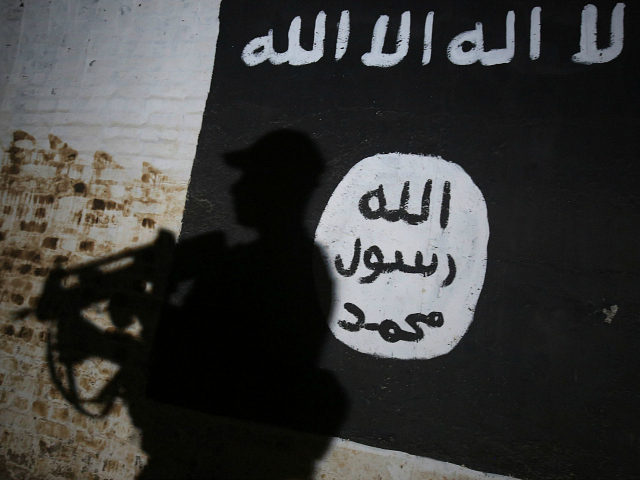The Islamic State (ISIL/ISIS) is expected to adapt to the imminent collapse of its so-called caliphate in Iraq and Syria, in part, by continuing to expand its international criminal enterprise, particularly the drug trade.
In an op-ed published by Military.com and other news outlets, Joseph Micallef, a best-selling military history and world affairs author, argues that losing its major strongholds of Mosul, Iraq, and Raqqa, Syria, will significantly weaken, but not completely destroy the Islamic State, also known as IS.
He writes:
It appears likely that within the next six to twelve months, the Islamic State will lose direct control of its current territorial domain. What then? Is this the end of the Islamic State? Unfortunately, no!
[…]
What is more likely is that IS will continue to demonstrate its ability to adapt, adjust and morph to its new reality… Regardless of its lack of territory, Islamic State’s ability to radicalize and mobilize new militants will continue undiminished. Islamic State’s first chapter will close soon. Its second chapter is just beginning.
Micallef goes on to note that the jihadist group’s “budding international criminal organization” will play a significant role in its future survival.
The expert identifies oil and antiquities smuggling, kidnapping, extortion, and drug trafficking in Europe as the components of ISIS’s criminal enterprise.
Citing top terrorism experts, Breitbart London reported in November 2015 that ISIS planned “to flood” the United Kingdom and other countries in Europe with heroin from Afghanistan, noting that Russia’s Federal Drug Control Service (FSKN) expected the terrorist group to generate billions in profits.
“As IS continues to feel the financial impact of its loss of territory, criminal activities will become an ever-growing source of revenue for the organization,” adds Micallef in his editorial.
Afghanistan is the world’s top producer of opium and its heroin derivative. Trafficking the illicit drug already provides Taliban terrorists with an estimated 60 percent of its funding, according to the U.S. military.
The Islamic State (IS) has established a stronghold in Afghanistan’s eastern province of Nangarhar, one of the major opium producing regions in the country.
“Around half of all Europe’s heroin is moved through ISIS-controlled territory in Iraq,” noted Breitbart London. “Criminal gangs who pay ISIS a commission do much of the work, but the terrorists are rapidly expanding their own operations.”
Italian authorities have purportedly confirmed that ISIS is involved in the drug trade, namely hashish.
The New York Times (NYT) learned from Italian officials last year about a “lucrative new [drug] trafficking route that stretched far to the east along the coast of Northern Africa — and always led to Libya, in an area fought over by competing armed groups that included the Islamic State.”
“From interrogations and surveillance, they know the route crossed territory that until a few weeks ago was claimed by the Islamic State — which has taxed shipments of drugs and other goods in Syria and Iraq,” noted the Times.
“Investigators say they believe that at least in some cases, the terrorist group would have been able to exact a tax in return for the drugs’ passage,” it added. “That matches the Islamic State’s business practice in its stronghold in Syria and Iraq, where according to one study by IHS Country Risk, 7 percent of the group’s revenue last year was from the production, taxation and trafficking of drugs.”
Although authorities have not explicitly linked ISIS to the illicit narcotics trade in the Western Hemisphere, the Islamic State is known to operate in high drug trafficking areas in Latin America and the Caribbean.
Latin America cartels have been known to cooperate with Iran’s narco-terrorist proxy Hezbollah and the Sunni group al-Qaeda.
According to the United Nations, traffickers smuggle South America cocaine into Europe through West Africa.
West Africa also provides a passageway into Europe and North America for Heroin from the Afghanistan-Pakistan region, the U.N. has reported.
The Islamic State’s West Africa Province and its Boko Haram affiliate have established a heavy presence in the area.
Nevertheless, a report from the U.N. last year was unable to determine the extent to which ISIS is involved in drug trafficking.

COMMENTS
Please let us know if you're having issues with commenting.